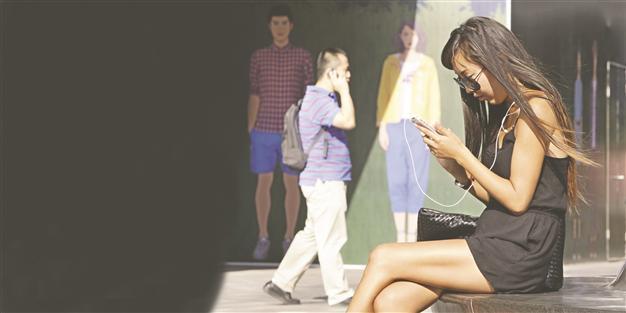Apple, Samsung face Korea ban
SEOUL

The legal struggle between Apple and Samsung continues in more than a dozen of countries. REUTERS photo
South Korean court has made a landmark decision on the lingering copyrights problems between Apple and Samsung, ruling on Aug. 24 that the two companies infringed on each other’s patents on mobile devices, awarding damages to both technology giants and imposing a partial ban on product sales in South Korea.The ruling is part of a bitter international patents battle between the two rival firms and comes ahead of a high-stakes U.S. jury verdict expected to set the course of their tussle for smart phone and tablet PC supremacy.
The Seoul Central District Court ordered Apple to remove the iPhone 3GS, iPhone 4, iPad 1 and iPad 2 from store shelves in South Korea, ruling that the products infringed on two of Samsung’s five disputed patents, including those for telecommunications technology, The Associated Press, said.
The court also denied Apple’s claim that Samsung had illegally copied its design, and that the shape and big display screen existed in products before the iPhone and iPad.
The Seoul Central District Court ruled that Apple breached two of Samsung’s technology patents, and ordered it to pay 40 million won ($35,242) in damages, AFP reported.
No risk of confusion
It also ordered Samsung to pay 25 million won for violating one of Apple’s patents. Each company had sought damages of 100 million won from the other.
The judges said there was “no possibility” that consumers would confuse Samsung and Apple smartphones - a key issue in the U.S. trial - and that Samsung’s smartphone icons do not infringe Apple’s patents.
But it said Samsung infringed Apple’s patent for bounce-back technology. Apple’s signature bounce-back design is the widely copied spring-back behaviour that occurs when a user reaches the edge of a document.
The court also banned sales in South Korea of Samsung’s Galaxy S, Galaxy SII and Galaxy Nexus smartphones, and the Korean firm’s Galaxy Tab and Galaxy 10.1 tablets.
But the banned products do not include the latest models from either firm such as the iPhone 4S and the Galaxy S3 smartphones.
The lawsuit is part of global, multibillion dollar fight between the world’s two largest smartphone makers that has been unfolding in nearly a dozen countries. The biggest stakes are in the U.S., where the two companies are locked in an epic struggle over patents and innovation in a federal court in San Jose, California. Cupertino, California-based Apple sued Samsung in April 2011 in the U.S., alleging that some of the South Korean company’s smartphones and computer tablets are illegal knockoffs of Apple’s iPhone and iPad. Samsung denies the allegations and argues that all companies in the cutthroat phone industry mimic each other’s successes without crossing the legal line.
Apple is suing Samsung for $2.5 billion and demanding that the court pull its most popular smartphones and computer tablets from the U.S. market, making the case one of the biggest technology disputes in history.
Jury deliberations began on Aug. 22 after three weeks of testimony. The case went to the jury after last-minute talks between the companies’ chief executives failed to resolve the dispute.
Shortly after Apple filed its suit in the U.S., Samsung filed a complaint in South Korea against Apple for allegedly breaching its telecommunications patents.
The battle is all the more complex as Apple and Samsung are not only competitors in the fast-growing global market for smartphones and tablet computers, but also have a close business relationship.
Samsung, the world’s biggest manufacturer of memory chips and liquid crystal displays, supplies some of the key components that go into Apple products.
















